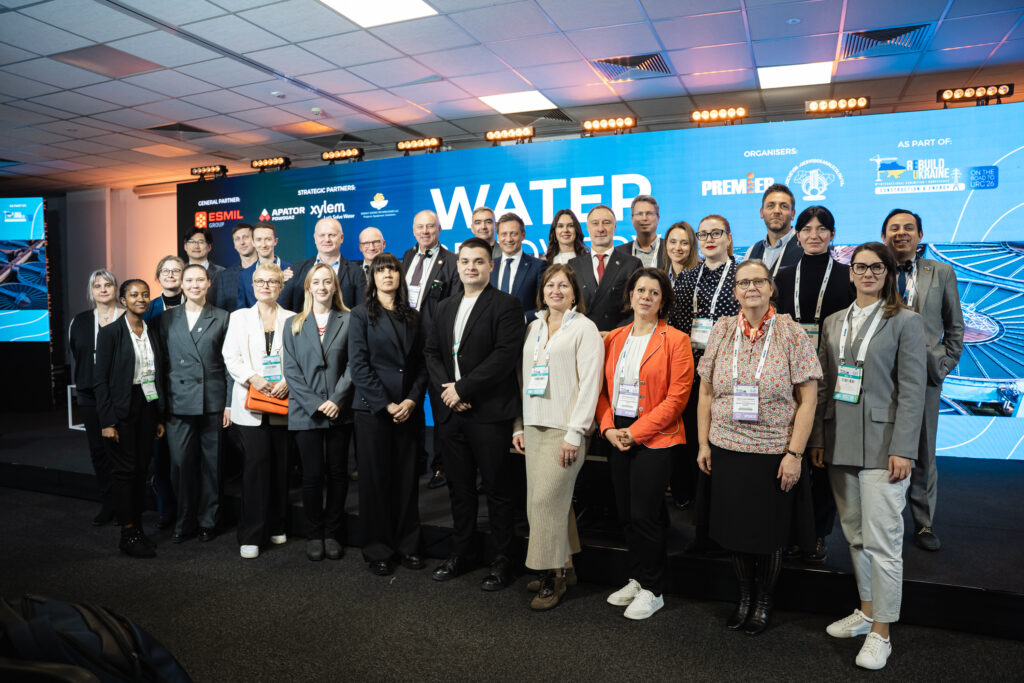Trilateral Workshop on Tariff Setting in the Water and Wastewater Sector
As part of the ReBuild Ukraine Conference, the German Association of Local Public Utilities (VKU) hosted a trilateral workshop on 12 November 2025 together with the Polish Chamber of Waterworks (IGWP) and the Association of Ukrainian Water Utilities (Ukrovodokanalekologiya). Supported by the KommuNe, Felicity II and the Utility Platform, three programmes of the Deutsche Gesellschaft für Internationale Zusammenarbeit (GIZ), the event brought together experts and decision-makers from politics, public administration and municipal practice, including representatives of regulatory authorities, ministries, and utilities from all three countries.
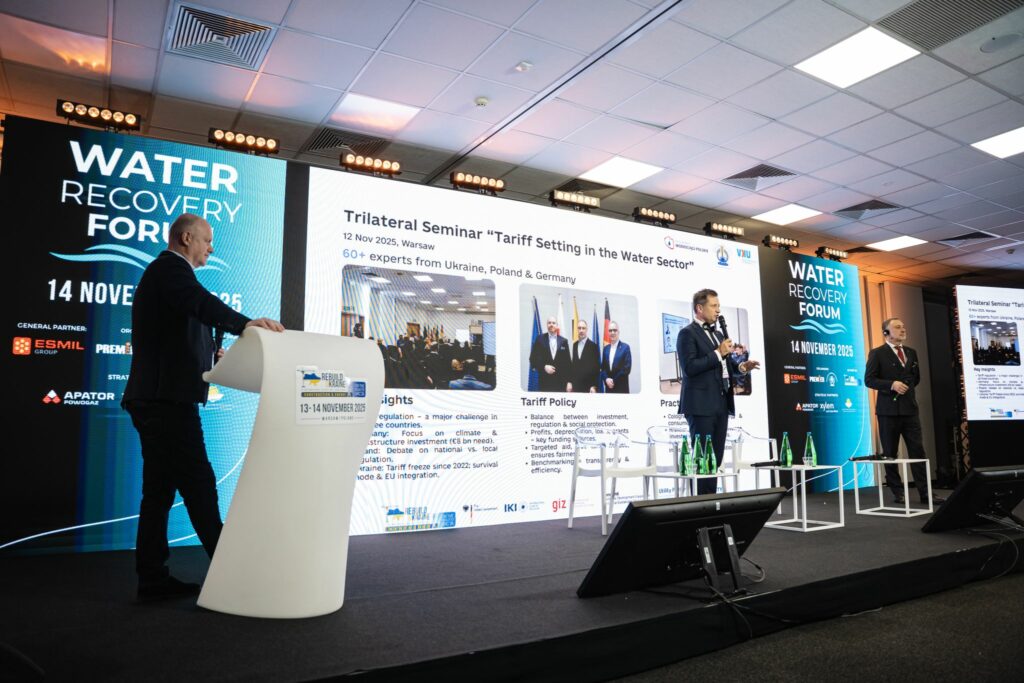
Tariffs as a Key to Future-Proof Public Services
In their opening remarks, Paweł Sikorski, Thomas Abel and Dmytro Novytskyi emphasised that water supply and wastewater management, as core public services, require reliable financing and therefore appropriate tariff structures. Thomas Abel highlighted that Germany’s water sector will significantly increase investment over the next 20 years to secure maintenance, modernisation, climate adaptation and resilience: efforts which require political and public backing. Dmytro Novytskyi drew attention to Ukraine’s unique situation: under wartime conditions, designing tariffs that are both cost-covering and socially acceptable is a major challenge, especially without jeopardising public trust.
Comparing National Models
In a keynote panel, experts from Poland, Germany and Ukraine presented their respective regulatory and tariff systems.
In Poland, since 2018, a central regulatory authority has reviewed tariff applications based on the previous three financial years. The goal is full cost recovery combined with consumer transparency. A forthcoming legal amendment may shift more decision-making power back to municipalities.
Dr Annkathrin Griesbach (VKU) explained the federal diversity of the German system. While water supply and wastewater disposal are mandatory municipal tasks, legal frameworks and tariff types vary widely across states. The cost-recovery principle ensures that charges do not exceed actual costs.
Ukraine currently operates a centralised system that requires reform to allow greater flexibility and alignment with European principles. According to Artem Chumak (NEURC), tariffs presently cover only around 70% of actual costs. Gradual adjustments, improved data collection, and benchmarking procedures are expected to support greater economic sustainability and public acceptance.

Trust, Transparency and Participation as Success Factors
During the subsequent panel and workshop sessions, participants discussed practical examples and solution pathways. Piotr Ziętara (CEO of Kraków Waterworks), alongside representatives of Stadtentwässerungsbetriebe Köln and Stadtentwässerung Dresden, demonstrated that transparent processes and regular, moderate tariff adjustments help strengthen public trust.
Participants worked in groups on tariff calculation, social affordability and community engagement. Discussions focused on how clear communication, data comparisons (benchmarking) and continuous public outreach can improve confidence in the sector.
Dmytro Vankovych, Director of Lvivvodokanal, offered an inspiring perspective on strengthening trust between utilities and citizens:
“We need to invest in independent expertise that will inspire trust among consumers. Today, Lviv residents pay an amount equivalent to three cups of coffee per month for water supply and wastewater services. If we want not only to cover operating costs but also to have resources to upgrade the infrastructure, we need to double this amount. This is a completely affordable fee for consumers, but our main task is to convey the importance of this step to citizens.”
Visiting the ReBuild Ukraine Exhibition
More than 700 global exhibitors used the international construction-focused conference to present solutions and technologies relevant to Ukraine’s reconstruction. Alongside international companies in the fields of infrastructure, energy and environment, key strategic partners and countries supporting Ukraine’s recovery showcased their activities.
Several German and Ukrainian utilities participating in Solidarity Operator Partnerships used the opportunity to explore on-site technical solutions for their infrastructure needs, e.g. Hydro Vacuum and Diehl Metering.
Water Recovery Forum
The Water Recovery Forum, organised by the Ukrainian Water Association (Ukrovodokanalekologiya) on 14 November 2025 within ReBuild Ukraine, served once again as a central platform uniting the Governments of Ukraine and the EU, utilities, donor organisations and international partners. The Forum aims to shape decisions on the recovery, modernisation and long-term resilience of Ukraine’s water systems in full alignment with European standards and today’s evolving challenges.
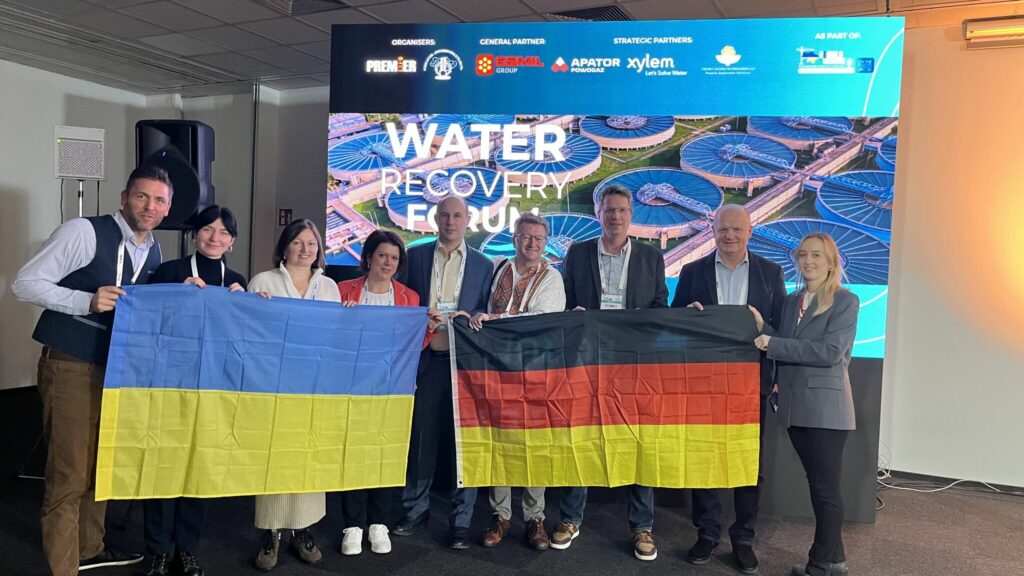
A wide range of speakers discussed Ukraine’s path towards EU integration, with a strong focus on water tariffs, governance, urban life-support system restoration and cooperation with international partners.
Nicholas Osbert, UNICEF Ukraine’s Chief of WASH, reminded participants that Russian attacks on infrastructure are intensifying. While energy-grid strikes tend to dominate public attention, water and wastewater systems are being hit as frequently. As a result, there is an urgency for continuous restoration efforts and long-term planning to scale up water and wastewater development in a post-war Ukraine. He also noted that municipal water tariffs currently cover little more than operating expenses and do not fund system upgrades. In his view, tariff increases are possible without undermining the population’s social right to safe drinking water.
Alona Shkrum, First Deputy Minister for the Development of Communities and Territories of Ukraine, stated that once peace is secured, Ukraine will have an opportunity to rebuild and modernise the water sector. In the short term, however, a Rapid Deployment Initiative (RDI) is needed, as communities near the Russian border urgently require clean water. She underlined the government’s goal of securing international support to develop effective solutions aligned with EU water standards. She pointed to forthcoming legislative reforms to modernise governance structures in the water sector and decentralise sanitation services. The ministry has set long-term goals for the technical modernisation of wastewater treatment plants by 2034 and improvements in drinking water supply by 2035.
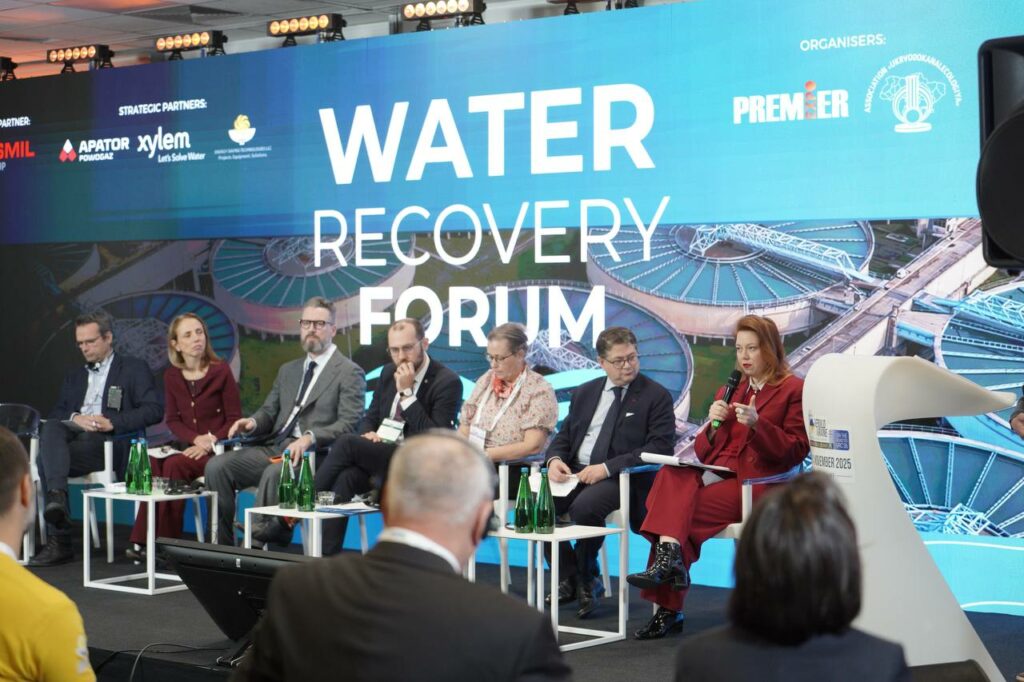
André Fabian, Lead of Felicity II at GIZ, echoed Osbert’s message regarding the vital importance of water and wastewater systems for economic recovery. He also emphasized the importance of strong public advocacy, innovative approaches, energy efficiency, integration of renewable energy solutions, and the consideration of climate impacts.
Anastasiia Kahlow, Adviser at the Utility Platform, presented Operator Partnerships as an impactful development cooperation tool, highlighting Solidarity Operator Partnerships between German and Ukrainian utilities. These partnerships strengthen Ukrainian utilities’ capacities during wartime and support the sector on its path towards European integration, and after the war is over, in the long run, they will contribute to reconstruction efforts of water utilities in Ukraine – including the planning, construction, and sustainable operation of new facilities.
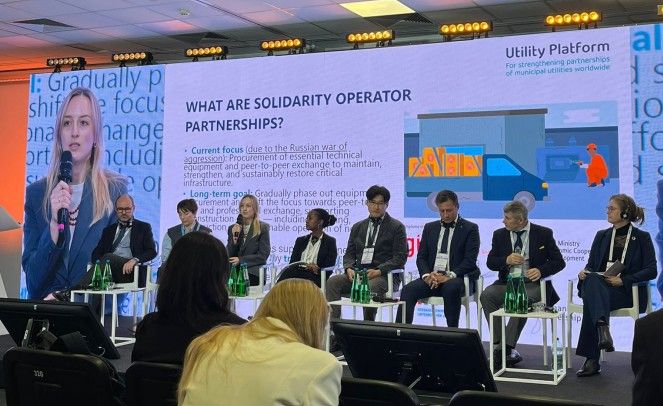
As a case study, Kristin Michalek-Götz and Volodymyr Kuzma showcased the partnership between Stadtentwässerung Dresden GmbH and Ternopil Vodokanal. Mr Kuzma, Director of Ternopil Vodokanal, highlighted the tangible benefits of peer-to-peer cooperation:
“The employees of the water utility are the foundation of the company. For them, the water operator partnership is a very valuable bonus – through continuous exchanges and visits with the German partners, they gain new experiences that they later implement in the company, strengthening both their own skills and the organisation as a whole.”
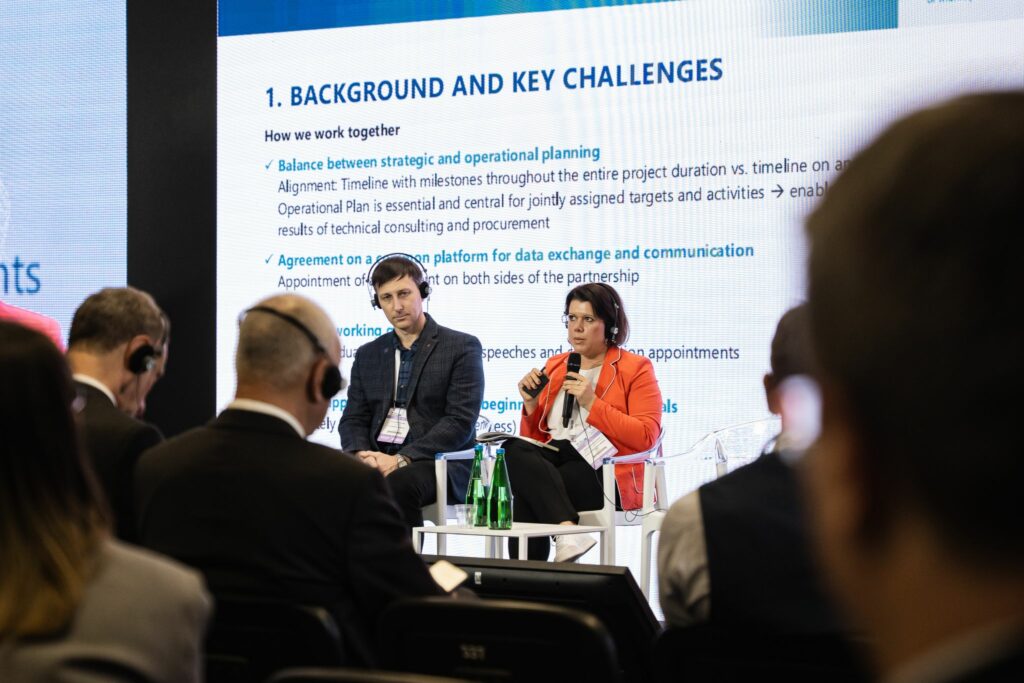
Conclusion
We are grateful for the annual organisation of this important event, which brings together key stakeholders dedicated to the recovery and reconstruction of Ukraine’s water sector. This year’s conference also marked the beginning of strengthened cooperation between the German, Polish and Ukrainian associations, who plan to continue supporting the Ukrainian water sector on its path towards the European Union.
